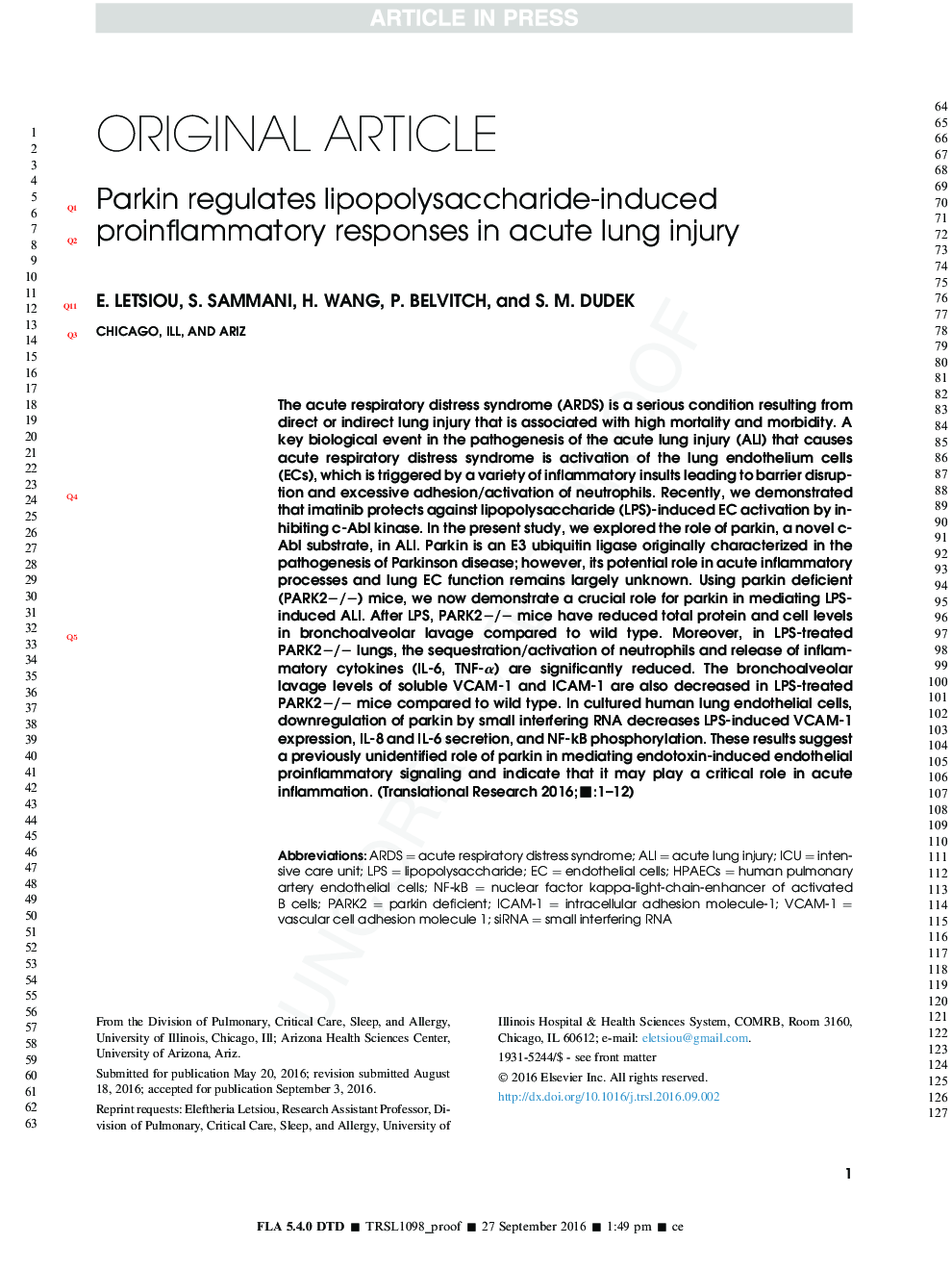| Article ID | Journal | Published Year | Pages | File Type |
|---|---|---|---|---|
| 5685052 | Translational Research | 2017 | 12 Pages |
Abstract
The acute respiratory distress syndrome (ARDS) is a serious condition resulting from direct or indirect lung injury that is associated with high mortality and morbidity. A key biological event in the pathogenesis of the acute lung injury (ALI) that causes acute respiratory distress syndrome is activation of the lung endothelium cells (ECs), which is triggered by a variety of inflammatory insults leading to barrier disruption and excessive accumulation of neutrophils. Recently, we demonstrated that imatinib protects against lipopolysaccharide (LPS)-induced EC activation by inhibiting c-Abl kinase. In the present study, we explored the role of parkin, a novel c-Abl substrate, in ALI. Parkin is an E3 ubiquitin ligase originally characterized in the pathogenesis of Parkinson disease; however, its potential role in acute inflammatory processes and lung EC function remains largely unknown. Using parkin deficient (PARK2â/â) mice, we now demonstrate that parkin mediates LPS-induced ALI. After LPS, PARK2â/â mice have reduced total protein and cell levels in bronchoalveolar lavage (BAL) compared to wild type. Moreover, in LPS-treated PARK2â/â lungs, the sequestration and activation of neutrophils and release of inflammatory cytokines (interleukin 6 [IL-6], tumor necrosis factor alpha [TNF-α]) are significantly reduced. The BAL levels of soluble VCAM-1 and ICAM-1 are also decreased in LPS-treated PARK2â/â mice compared to wild type. In cultured human lung endothelial cells, downregulation of parkin by small interfering RNA decreases LPS-induced VCAM-1 expression, IL-8 and IL-6 secretion, and NF-kB phosphorylation. These results suggest a previously unidentified role of parkin in mediating endotoxin-induced endothelial proinflammatory signaling and indicate that it may play a critical role in acute inflammation.
Keywords
HPAECsLPSIL-6VCAM-1ARDSNF-kBICAM-1Small interfering RNAsiRNAAcute lung injuryAliinterleukin-6intensive care unitICUtumor necrosis factor alphahuman pulmonary artery endothelial cellsEndothelial cellsAcute respiratory distress syndromeTNF-αlipopolysaccharideintracellular adhesion molecule-1Vascular cell adhesion molecule 1
Related Topics
Health Sciences
Medicine and Dentistry
Medicine and Dentistry (General)
Authors
Eleftheria Letsiou, Saad Sammani, Huashan Wang, Patrick Belvitch, Steven M. Dudek,
